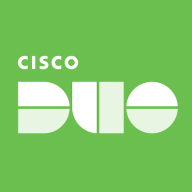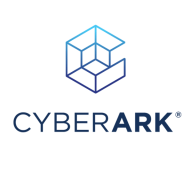

Cisco Duo and CyberArk Certificate Manager compete in the security authentication and certificate management markets respectively. Based on the comparison, Cisco Duo appears to have the upper hand with its flexibility and ease of integration across various environments and applications.
Features: Cisco Duo offers multi-factor authentication that doesn't require a smartphone, aligning with diverse user needs. It integrates well with numerous applications, enabling seamless access management. Users appreciate its visibility and reliable authentication features. CyberArk Certificate Manager focuses on automating certificate discovery, rotation, and deployment. While it offers robust automation capabilities, it falls short in providing comprehensive third-party integrations and flexible cloud support.
Room for Improvement: Cisco Duo can improve by eliminating the telephony credits system and expanding on-premises options to meet regulatory demands. Enhancing compatibility with more enterprise applications and integrating better with the broader Cisco ecosystem is also desired. Meanwhile, CyberArk Certificate Manager is viewed as expensive. It could benefit from better hardware integration, increased out-of-the-box automation features, and a simplified pricing model. Its current on-premise focus may not align with the needs of all cloud-oriented organizations.
Ease of Deployment and Customer Service: Cisco Duo provides flexible deployment options supporting public, private, hybrid cloud, and on-premises environments. Its customer service is generally well-regarded, though some users report delays and wish for faster support responses. CyberArk Certificate Manager is primarily focused on on-premises deployment, potentially limiting its utility for cloud-first companies. Its technical support requires improvements in response times and consistency.
Pricing and ROI: Cisco Duo's pricing structure is flexible and competitively viewed, offering various licensing options to suit organizational needs. The ROI is recognized through improved security and potentially reduced insurance premiums. CyberArk Certificate Manager's pricing is perceived as moderate to high, possibly impacting its value perception. However, it offers ROI in streamlined operations and maintaining compliance, though its cost could be prohibitive for some.
I think Cisco Duo offers a good return on investment for startups, newer organizations, or those utilizing cloud-based applications.
I have not seen ROI with Cisco Duo; probably the opposite, because it impedes productivity time to be able to get into the system.
From my point of view, the biggest return on investment when using Cisco Duo is the security and the ease of setting it up.
CyberArk Certificate Manager is doing its best with multiple layers of security.
With Venafi, it wasn't about saving time but achieving functionality that was otherwise impossible, such as distributing certificates without manual intervention.
They got back to us quickly, were nice, and gave us what we needed.
I would rate their support 10 out of 10.
I would rate support for Cisco Duo a 10, as I have never had a negative experience.
Inquiries are typically addressed the same day, with most issues, even complex ones, resolved within 24 hours.
Venafi's technical support is excellent, with even their first-tier support being in-house and highly competent.
Their technical support is knowledgeable and helpful, making Venafi stand out among other CyberArk products.
In my last contracting position, it was a large one for a major worldwide airline that had hundreds of thousands of devices that could use Cisco Duo, and it scaled very well.
I believe Cisco Duo is very scalable because it is cloud-based.
We started out with just the basics, getting a token, and then we changed to push, and now, we have added the offline mode.
This role-based access control enhances scalability and efficiency by providing a focused view of necessary information.
Horizontal scaling is a necessity rather than vertical scaling.
Scalability with Venafi is good; you can definitely use it if you have ten thousand certs, a thousand certs, a million, or a couple million.
We have not had any Cisco Duo outages across all the companies I have worked for that utilize Cisco Duo.
When there is a bigger problem, we get notifications from Cisco Duo saying, 'Hey, we have a problem,' and that has helped us.
We have never experienced any downtime.
Venafi's stability has been consistently reliable.
Venafi is a stable product. It's definitely more stable than others.
I observed that in the last year, CyberArk Certificate Manager was down two to three times without any notification.
If you don't have internet access, you can't access your computer, only local access is available.
It lacks some dynamic identity management features compared to other products such as SailPoint.
Cisco should allow easier integration with third-party equipment because Cisco's own equipment is expensive.
Expanding the range of out-of-the-box integrations would significantly improve the user experience.
The yearly DNS verification required by certificate authorities necessitates manual intervention, hindering full automation.
They are pushing for cloud adoption, but we prefer on-premises solutions due to regulatory concerns.
The pricing is acceptable to them.
Their website lists $3 per month per user for the Essential license.
One of my customers recently received a billing statement charging 3,600 US dollars for 100 users for one year.
Venafi offers good value for the cost.
The pricing has increased for us, impacting our organization due to its operational expenditure (OPEX).
For our budget, Venafi's cost is moderate. It's not expensive as internal certificate generation is free, and we only pay for the public CA certificate signer and for storage in Venafi.
From a management perspective, I appreciate that we can enroll or control devices on the back end for people who get a new phone and forget to handle Cisco Duo properly and need to add a new device.
Our company benefits from all those features of Cisco Duo with confidence, and we feel very secure with it in terms of authentication of our logins.
The benefit of having a complete passwordless environment in our organization is that it's gotten people away from using the sticky note under their keyboard - which is a huge problem.
The most valuable feature of Venafi is the automation that helps save time and reduce human error.
It ensures centralized certificate management, which is crucial for compliance and maintaining best practices.
What I like best about Venafi is that it's very easy to get somebody on a call and get any of my questions answered.
| Product | Market Share (%) |
|---|---|
| Cisco Duo | 5.3% |
| CyberArk Certificate Manager | 1.8% |
| Other | 92.9% |


| Company Size | Count |
|---|---|
| Small Business | 31 |
| Midsize Enterprise | 18 |
| Large Enterprise | 40 |
| Company Size | Count |
|---|---|
| Small Business | 6 |
| Large Enterprise | 13 |
Cisco Duo is a cloud-based identity security platform safeguarding critical resources for any user and device worldwide. Known for its ease of use, Duo offers seamless protection across multi-cloud, hybrid, and on-premises environments.
Cisco Duo is designed to secure access with identity-first protection and provides extensive visibility throughout an organization's identity ecosystem. Offering multi-factor authentication, Duo facilitates easy integration and management, allowing teams to protect data effectively on VPNs, applications, and networks. Its single-pane management improves security processes while enhancing trust, making it suitable for diverse IT infrastructures.
What are the key features of Cisco Duo?
Which benefits and ROI should users consider?
In industries like education and finance, Cisco Duo is widely employed to secure multi-factor authentication across platforms such as email, databases, and servers. Its integration capabilities with Microsoft 365, Active Directory, and VPNs like AnyConnect are instrumental in verifying user identities using mobile apps or OTPs, catering effectively to both remote and on-premise environments.
CyberArk Certificate Manager automates and streamlines certificate processes, reducing errors and enhancing efficiency. It centralizes management, supports compliance, and improves certificate lifecycle management with customizable features.
CyberArk Certificate Manager offers a streamlined approach to managing certificates, focusing on automation that minimizes manual intervention and errors. Its discovery and centralized management enhance operational efficiency, while integration capabilities facilitate seamless handling of certificates across systems like AWS and Azure. Users benefit from its user-friendly, intuitive interface, robust reporting, and customizable notifications, which improve compliance, reduce bottlenecks, and allow for custom field creation. Though the on-premises version is mature, there is room for improvement in cloud service integration and out-of-the-box features. Additional enhancements are needed in documentation clarity, hardware security module support, and diverse scripting language support.
What are the most important features of CyberArk Certificate Manager?CyberArk Certificate Manager finds applications across multiple industries like finance and healthcare where stringent security protocols are critical. Organizations use it for server authentication and managing application IDs, ensuring compliance and preventing outages. Its integration with major cloud platforms and automation of installations across endpoints makes it an ideal choice for companies focusing on enhancing security and operational efficiency.
We monitor all Authentication Systems reviews to prevent fraudulent reviews and keep review quality high. We do not post reviews by company employees or direct competitors. We validate each review for authenticity via cross-reference with LinkedIn, and personal follow-up with the reviewer when necessary.